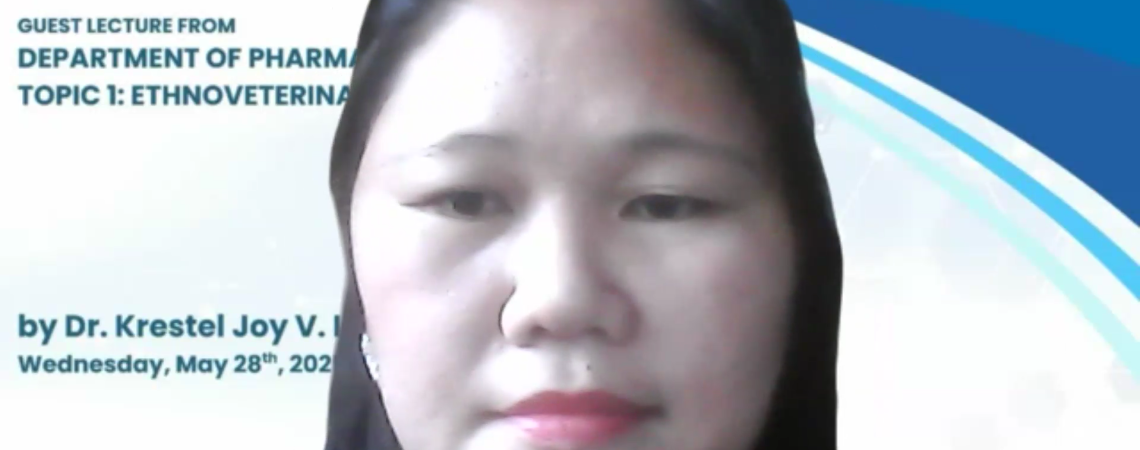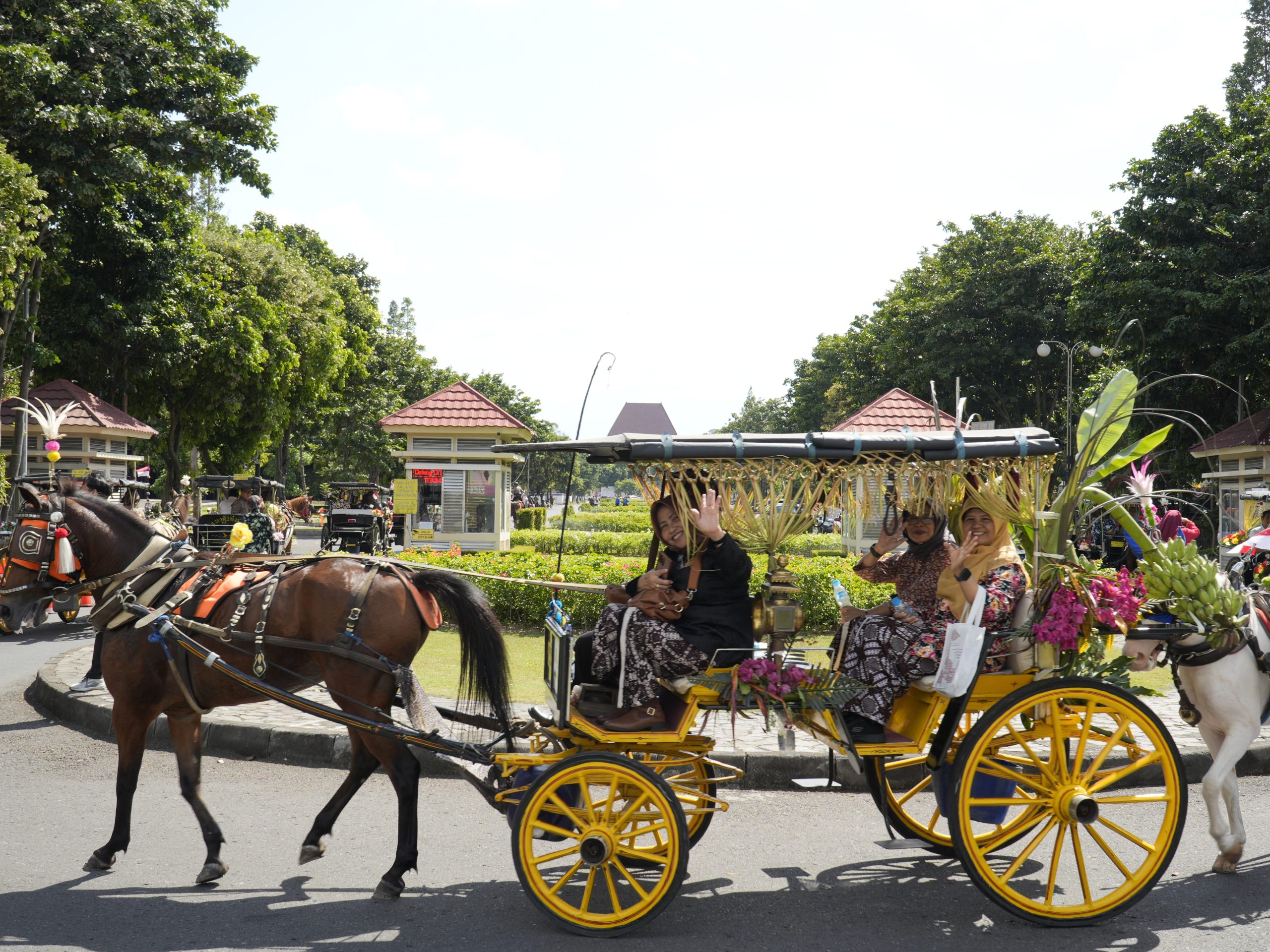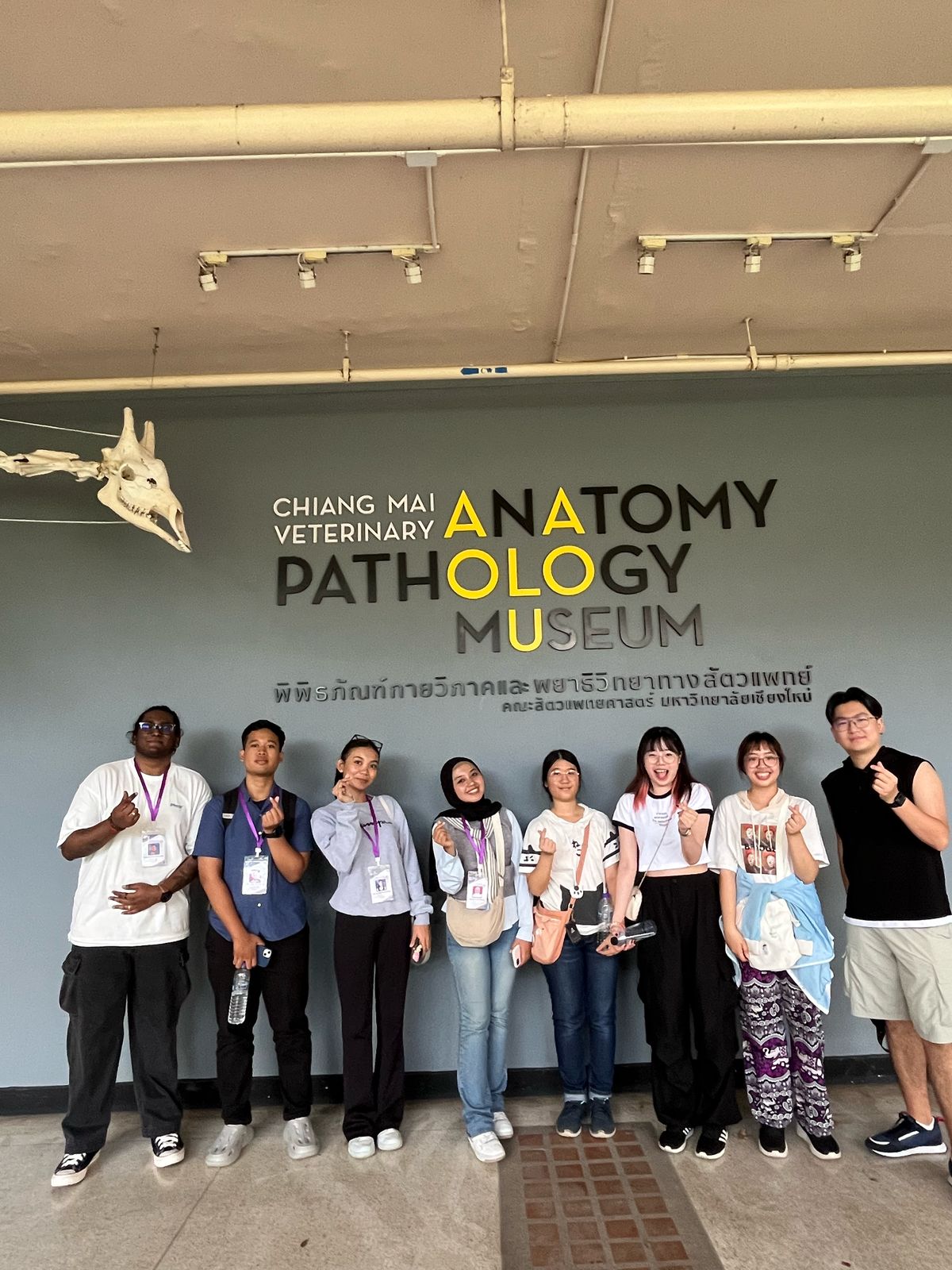Yogyakarta – Wednesday, May 28th, 2025, the Department of Pharmacology Faculty of Veterinary Medicine, Universitas Gadjah Mada (UGM), held a guest lecture titled “Ethnoveterinary Medicine and Toxicology”. The event featured Dr. Krestel Joy V. Isla, a lecturer from the College of Veterinary Medicine at Tarlac Agricultural University, Philippines. This online lecture allowed participants from various locations to join, promoting global partnership in education and research.
The guest lecture was officially opened by the Vice Dean for Academic and Student Affairs, Prof. Agung Budiyanto, DVM, M.P., Ph.D. In his opening remarks, Prof. Agung expressed his appreciation to the Department of Pharmacology for organizing this insightful event. He emphasized the importance of such programs in providing valuable knowledge to students and hoped that they would continue to be held sustainably. He also conveyed the importance of integrating traditional knowledge with modern veterinary practice, in line with the Sustainable Development Goals (SDGs) such as affordable medicines.
Dr. Krestel Joy V. Isla presented a fascinating topic that aligns with the Sustainable Development Goals (SDGs), particularly in the areas of affordable medicines and biodiversity. Indonesia, known for its rich biodiversity, has a plethora of plants that can potentially be utilized as herbal medicines for animals. This aspect of ethnoveterinary medicine is crucial, as it promotes equal access to alternative treatments that are both effective and environmentally friendly.
During her presentation, Dr. Krestel highlighted the significance of ethnobotanical preparations as a promising approach to introduce alternative sources of nutrition and treatment for animals. She explained that these preparations often utilize fermentation methods to enhance the herbal potential of various plants and fruits, making them viable alternatives for animal healthcare.
The use of plants as alternative treatments not only supports economic productivity by reducing costs associated with conventional medicines but also encourages creativity and innovation in veterinary practices. Dr. Krestel pointed out that the efficient use of resources in agriculture and animal husbandry is essential for sustainable development.
However, she also mentioned the importance of conducting thorough phytochemical analyses and toxicity testing of these plants before advancing to further research stages. This precaution ensures the safety and efficacy of herbal treatments, which is vital for both animal welfare and public health.
Some of the plants and fruits that have been studied for their potential benefits in animal health include water spinach (kangkung), bananas, ginger, garlic, and onions. The students showed great enthusiasm during the lecture, engaging actively with Dr. Krestel’s insights and asking questions about the practical applications of her research.
The event not only provided valuable knowledge but also fostered a global partnership in veterinary education, connecting students and professionals across borders. It exemplified the commitment of UGM to enhance access to education and promote sustainable practices in veterinary medicine.
In conclusion, the guest lecture by Dr. Krestel Joy V. Isla was a significant contribution to the field of ethnoveterinary medicine, highlighting the potential of Indonesia’s rich biodiversity in developing affordable and effective treatments for animals. The Department of Pharmacology at FVM UGM continues to play a vital role in advancing education for sustainability and fostering innovation in veterinary practices.





